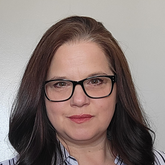Kidney Supportive Care: Expanding Choice with Concurrent Hospice and Dialysis Care
Overview
People living with end-stage kidney disease (ESKD), who are on dialysis, experience very high mortality, significant symptom burden, reduced quality of life, and impaired functional status. However, only about 25% of Medicare beneficiaries with ESKD received hospice at the time of death, which is approximately half of that of other serious illnesses. This is largely impacted by the Medicare hospice benefit, which currently excludes coverage of dialysis care if ESKD is related to the hospice diagnosis, such that patients must discontinue dialysis to enroll in hospice. Under this existing framework, patients and families often face the difficult decision of having to choose between dialysis care and hospice.
In this Interprofessional Grand Rounds, nephrology and palliative care clinicians, Emily Lu, MD, and Jane Schell, MD, MHS, and social worker, Lisa Maurer, LCSW, ACSW, explore the emerging role of concurrent hospice and dialysis care (“concurrent care”) and its impact on person-centered care. By the end of the session, participants will understand the role of kidney supportive care in patients with ESKD, the benefits of concurrent care, and approaches for operationalizing concurrent care in daily practice, focusing on the challenges in implementation and opportunities for further development.

Slides
members loginPresenters
-

Emily Lu, MD
Assistant Professor of Clinical Medicine
Division of Nephrology & Hypertension
Division of Geriatri… -

Lisa Maurer, LCSW, ACSW
-

Jane Schell, MD, MHS, FNKF, FAAHPM
Associate Professor
Section Chief of Palliative Care and Medical Ethics
Division of Renal-Electroly…
